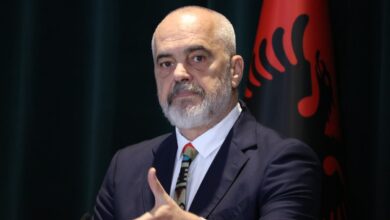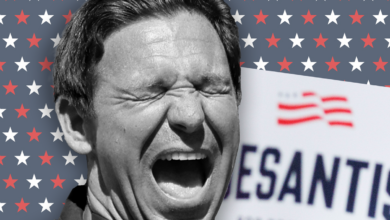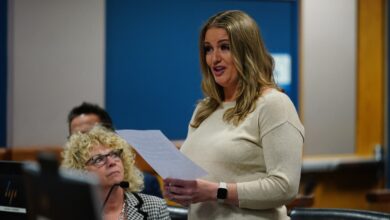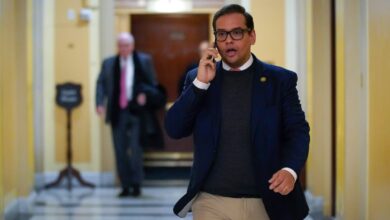Americans welcomed Prince Harry with open arms. Will ‘Spare’ spoil the love story?
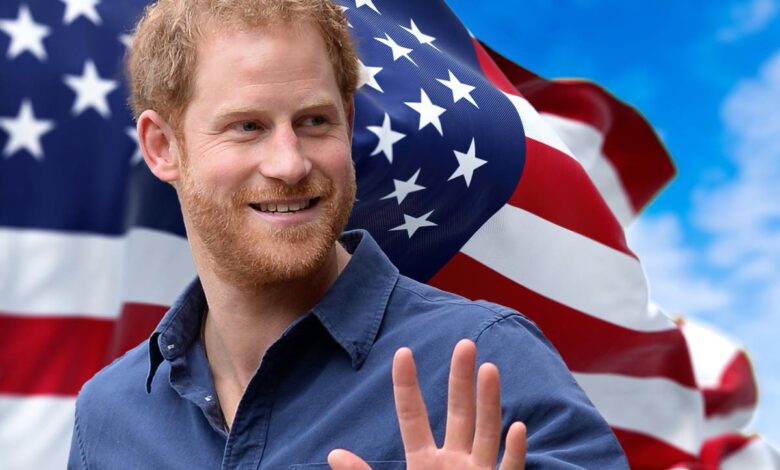
At the Nineties height of the US teen magazine – incidentally, when Meghan Markle was a California schoolgirl – it was not uncommon to see the brooding face of Prince William staring out from glossy covers alongside Hollywood heartthrob glamour shots. Girls from coast to coast debated the merits of marrying either William or Prince Harry, dreaming of the royal weddings they’d someday have when one of the princes inevitably plucked them from obscurity.
As those young royal fans matured, they carried with them an affection for the princes and the British monarchy. They remember where they were when they heard of Princess Diana’s tragic death. They followed the princes’ romantic lives and eagerly devoured footage of their weddings.
When Harry decamped to the US with his American bride, the narrative bore the same hallmarks as America’s very foundation: Rebellion. Self-reliance. Reinvention. Romance.
They’d seen the very fairytale they’d wished for come true before their eyes, and the teen mag generation – along with much of the rest of America – welcomed Harry and Meghan with open arms. The Sussexes leaned in and then some, expertly dispensing morsels of gossip as they cast themselves as philanthropic visionaries.
But two days after the release of Harry’s memoir Spare, a text to a group of 40-year-old high school friends – women now living across the country with different politics and careers – prompted a fast and furious barrage of responses.
“So I loved the Oprah special and the Netflix series. Now with the book, it’s overkill.”
“It’s hard to feel sorry for someone who arguably had/has more advantages and opportunities than almost anyone in the world. He comes across as spoiled, entitled, and out of touch, and frankly, so does his wife.”
“It’s like watching a train wreck in real time.”
Millions have tuned in to Harry’s back-to-back interviews, and sales of Spare have shattered records – but the Duke of Sussex’s media blitz may be testing the limits of America’s paradoxical penchant for royalty. Harry and Meghan, upon their arrival, could not have gotten off to a better start; but they were already playing to a friendly crowd.
“To a broad American audience … there is something that fascinates about something that the US doesn’t have, which is a royal family,” Erik Goldstein, a Boston University professor of international relations and history, tells The Independent. “It’s not that the US wants a royal family, but it enjoys watching someone else’s.”
When the Sussexes announced their transatlantic move in January 2020, Americans had “goodwill toward their arrival and curiosity about what they were going to do, because this had never happened before. So this was a new experience,” Mr Goldstein says. “And from the moment of their engagement to their marriage to their coming here, they were seen as representing good news and planning to do positive things. So they were an uplift story.”
The couple’s relocation brought the royal family closer to home for Americans in more ways than one. Their openness removed “that whole distance that we always get that feeling about, especially with Charles, whenever we actually hear him open his mouth or hear what he says – the sense that he’s not living on the same planet, it’s totally, very weird,” says Bob Thompson, director of the Bleier Center for Television & Popular Culture at Syracuse University.
American royal fans were hungry for every detail about the mysterious monarchy, and the Sussexes seemed only too eager to oblige. They did so in a way that tapped into not only the palace fascination but also an American overshare culture that pioneered the double-edged animal of reality TV.
“The United States is very good at self-obsession and consuming the self-obsession of others,” Mr Thompson tells The Independent. “And we’ve been helping to mature this for a long, long time … psychoanalysis, the talking cure, and that kind of thing goes back well over a century, which talked about this confessional kind of thing, bringing it all out in the open – which we manifest in all kinds of popular ways.”
British expat Tamsin Lonsdale, who moved to LA in 2009, calls that American inclination “completely the opposite” of England.
Prince Harry and his wife shared intimate portraits of their family life in their recent Netflix series
“But having lived in America for so long, everybody has a reality show,” she tells The Independent. “It feels kind of cheesey and kind of naff, but … it makes for an interesting read.”
Americans did, undeniably, eat up Harry and Meghan’s open-book image, following along with the young parents’ foray into California life.
“What I like [is] he’s so honest. There’s no walls up around him anymore,” says one 69-year-old Florida retiree who asked, as a former New York police detective, that her name not be used.
She was not a lifelong fan of the royal family but instead numbers among the Americans who tuned in only after Meghan came on the scene – a phenomenon Mr Thompson has noticed particularly among younger people. He believes that is “not only because she’s an American, and she’s an actress … but I think also the idea that she is a biracial American actress marrying into what is considered by many young people anywhere as being anachronistic, archaic institution, the British monarchy.”
A sitdown interview with Oprah and the Sussexes garnered 17million US viewers
Many US fans view their devotion to Harry as an extension of their love for his late mother, Princess Diana, pictured holding her younger son as a boy

